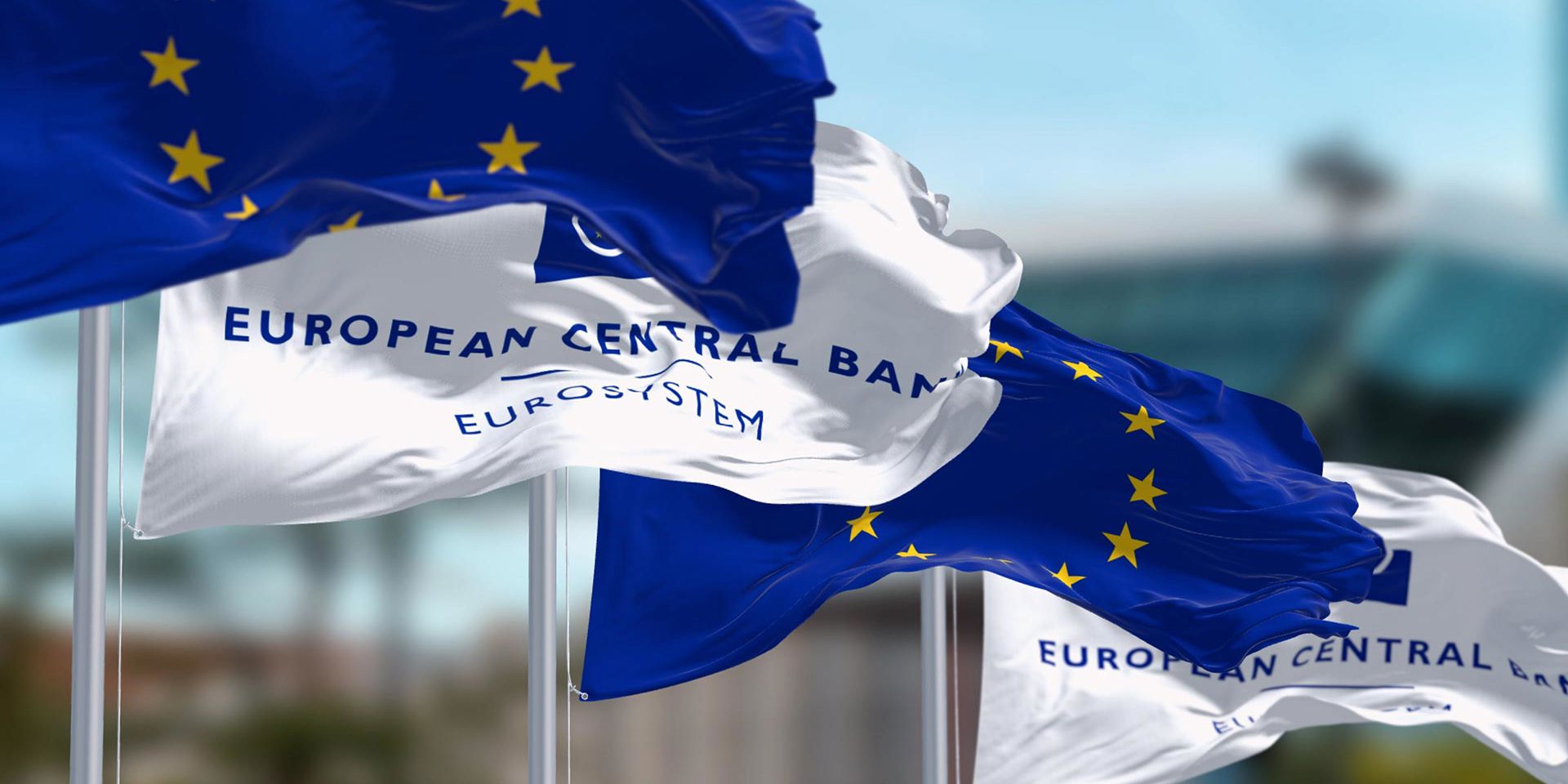European Central Bank and the Eurosystem
The euro area consists of all EU countries which have adopted the euro as their currency. About 350 million people live in the 20 countries of the euro area. The European Central Bank (ECB) is the central bank for Europe’s single currency. The ECB and the national central banks of the euro area countries together form the Eurosystem.

The members of the euro area are Austria, Belgium, Croatia, Cyprus, Estonia, Finland, France, Germany, Greece, Ireland, Italy, Latvia, Lithuania, Luxembourg, Malta, the Netherlands, Portugal, Slovakia, Slovenia and Spain. The role of the Eurosystem is to administer the use of the world’s second largest currency – the euro – and the monetary policy of the euro area.
The European System of Central Banks (ESCB) consists of the national central banks (NCBs) participating in the Eurosystem and the NCBs of those EU member states that have not yet introduced the single currency (Bulgaria, Czech Republic, Denmark, Hungary, Poland, Romania and Sweden).
The ECB is answerable for ensuring that the tasks of the Eurosystem are carried out, either through its own activities or via the NCBs. For their part, the euro area NCBs carry out the tasks that fall to the ESCB and the Eurosystem. The NCBs contribute through, for example, participation in a range of committees. The NCBs also have national responsibilities that lie outside the Eurosystem.
The Treaty on the Functioning of the European Union accords the Eurosystem absolute independence for executing its duties. The ECB, the Eurosystem NCBs and the members of their decision-making bodies may not seek or take instruction from any outside body.
The primary objective of the Eurosystem is to maintain price stability. It also aims to support the EU’s general economic policy, as long as this is not in conflict with the objective of price stability.
The tasks of the Eurosystem are:
- implementation of monetary policy in the euro area
- conducting foreign exchange operations and the holding and management of the official foreign reserves of the euro area countries
- issuing of banknotes within the euro area
- promotion of the smooth operation of payment systems
- collection of statistical information
- safeguarding financial stability.